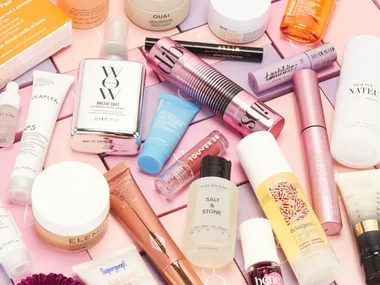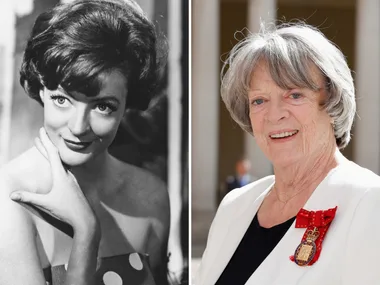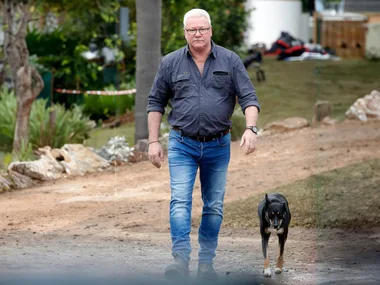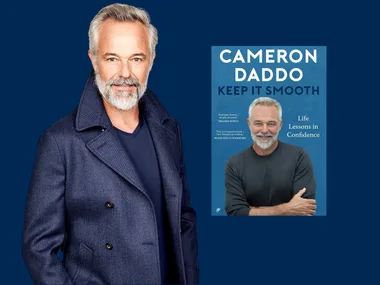Hollywood’s full of ’em, but can relationships between older women and younger men ever work in the ‘real’ world?
Demi Moore, 47, and Ashton Kutcher, 32. Madonna, 51, and Jesus Luz, 23. Mariah Carey, 41, and Nick Cannon, 29. Sam Taylor-Wood, 43, and Aaron Johnson, 19. The list of female celebrities dating considerably younger men is growing.
While some relationships fall by the wayside (Madonna and Jesus supposedly split because they had ‘nothing in common’), others do succeed (Demi and Ashton have been married for five years, while Sam and Aaron are expecting a baby).
A look at figures released by the Australian Bureau of Statistics suggests us lesser mortals are following the trend, with the proportion of relationships where women are at least 10 years older than their partner rising 23 per cent between 1996 and 2006. This year a survey by Prevention magazine found 55 per cent of Australian women had dated a younger man. At Fast Impressions Speed Dating, ‘Toyboy Nights’ have the highest match rates of any of their themed events. But is it really such a new phenomenon?
Times are a’changing
“Older women have had relationships with younger men since history began. But in the past only aristocratic, rich, famous or powerful women were able to do so and survive the condemnation from society,” says Valerie Gibson, author of Cougar, A Guide For Older Women Dating Younger Men (www.valeriegibson.com).
She was married to a man 14 years her junior. “With the advent of women obtaining economic independence, things have finally started to change.” “I think it’s becoming more acceptable as lifestyles change,” adds Sydney-based Love Coach Carolin Dahlman (www.carolindahlman.com). “Nowadays we all tend to live similar lives, unlike when our parents were young and there were clear gaps between the generations. These days it’s OK to act young when you’re old. We have the freedom to choose what lifestyle we want.”
Although the majority of us still follow the tradition of getting married, buying a house and having kids by a certain age, more and more are choosing alternatives. As a result, it’s becoming more the ‘norm’. But it’s not just this acceptance that sees more women dating younger men.
“They seem more alive, vital, optimistic and enthusiastic,” says Valerie. “They’re not as jaded as older men. They adore their woman, cherish her, find her interesting. And they like to make love a lot. Women reach their sexual peak later in life, so it’s a good match.”
The Prevention survey echoes this, with 29 per cent of women saying they are attracted to younger men because they have more energy and stamina. But the main attraction, according to 37 per cent of respondents, was good looks. Thanks to increasingly better living standards, older women can stand their ground in that arena.
“With better education on health, diet and fitness, and everyone living longer and healthier, women in their 40s, 50s and 60s can still look youthful and feel great,” says Valerie. “And far from what they’ve been led to believe, sexual desire doesn’t drop off but maintains, just like it does in men.”
Stages versus ages
So you might be perfectly matched in the sack, and both look great, but does a 10-, 15- or even 20-year age gap not pose other problems? “The difficulties faced by couples in these relationships are no different to those faced by anyone in any relationship,” says Carolin. “Age is not the problem, but things like different values, lifestyles, morals, even spending habits, could be.” These could be linked to age, but they might also be a result of upbringing, family life or personal habits.
What could be a problem is if you’re at different stages in life. “If the woman is at the top of her career and earning a lot more than the man, he could resent it,” says Valerie. “But this can happen between couples of the same age too. The biggest problem when dating a younger man is procreation.”
If he wants to become a father, but she’s already raised her children and doesn’t want – or is past the age where it’s possible – to have more, it could spell the end of the relationship. As could one partner’s desire to ‘settle’. But it’s not always the party you think.
“Some women dating younger men do want to settle, but for me the term ‘cougar’ means a strong, independent, sophisticated, intelligent, sexy woman who chooses not to marry again, co-habit or have kids,” says Valerie. “She’s been there, done that. If she sees things are getting serious she’ll simply move on to someone else. She wants a wonderful time with a younger man, but she’s a free spirit who goes her own way.”
Just a number
It’s that free spirit that attracts younger men. “When I wrote my book it was primarily the women doing the chasing,” says Valerie. “But now older women are deliberately hunted by younger men. It’s a challenge for them to date a woman who is a free spirit and won’t be tied down.”
If the relationship does progress, what are the odds it can last the distance? Research from the Australian National University suggests marriages where the man is two or more years younger than the woman have a 17 per cent failure rate compared to 10 per cent in marriages between partners of a similar age. That figure is even higher if the man is under 25.
But Carolin disagrees. “Success has nothing to do with age,” she says. “It’s about how you create your relationship. If it’s built on love, respect and communication, you’re on to a winning formula, no matter how old you are. If you’re in love and happy, who cares? Don’t let society tell you it won’t work. Brave people follow their heart. Others follow other people’s opinions.”
“There are still pockets of society that condemn such a pairing,” adds Valerie. “But in the future such relationships will be acceptable to everyone. Changing any prejudice takes time. For the first time in history older women are taking complete control of their lives. They’re seeing that ageing is an exciting adventure with fantastic options – including dating younger men. It’s not for everyone, but it’s wonderful we have the choice.”
So don’t be afraid to try. Oh, and don’t worry he’ll leave you for a younger model. “In my experience, these relationships rarely end because he leaves for someone younger. If he wanted to date a younger woman he would. He chooses to date older and, once in that fabulous world, he doesn’t want to leave!”
And as Sam Taylor-Wood told Harper’s Bazaar – if it’s good for the goose it’s good for the gander. “The amount of men I know with the same age gap that we have – how come no one says anything about that?”































































